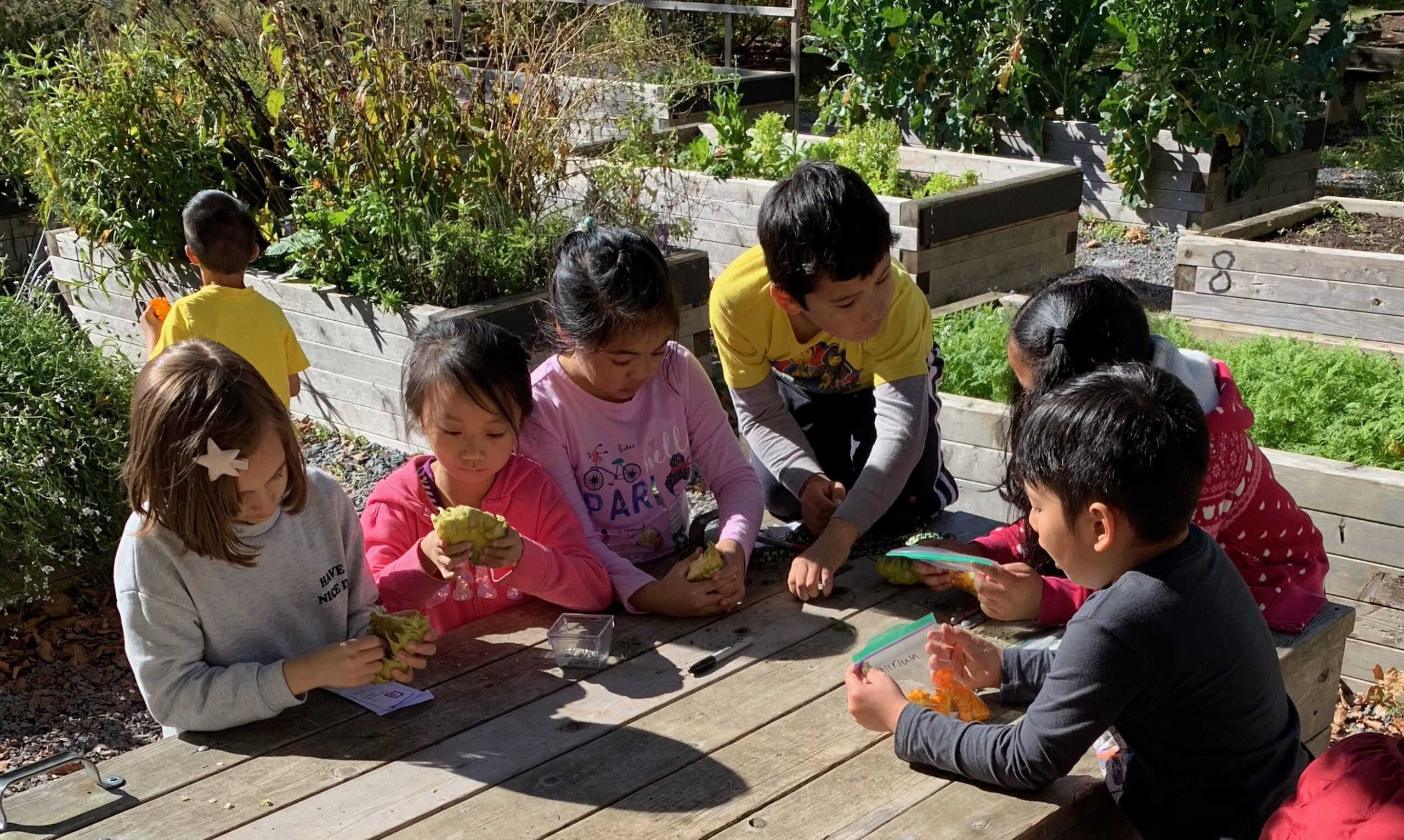As September rolls around, the age-old concept of “back-to-school” just doesn’t have the same ring as past years. According to a recently released United Nations policy brief, education as we know it will be fundamentally different, not just today but into the future. Rather than going “back to school,“, we need different and forward-thinking approaches. One that is growing in popularity is outdoor education.
Outdoor education can bring curriculum to life through hands-on learning and, in the time of COVID-19, it allows for physical distancing and can happen in flexible environments at school, home, or in the broader community. With no computers, tablets or other fancy equipment required, outdoor learning is being praised as offering an equitable approach to education. Connections to fresh air and nature support students’ social– emotional wellness, and associated activities get kids moving more and sitting less. Not to mention, outdoor learning has been shown to help students develop eco-conscious attitudes, which is integral to combatting the ongoing and urgent climate crisis.
COVID-19 disruptions are causing a dramatic increase in childhood trauma, creating additional strain on educators and families. Community-based environmental and outdoor education programs can help to address these dire needs and discrepancies through innovative partnerships and educational investments and policies”
– North American Association for Environmental Education (NAAEE)
It’s perhaps not surprising then that parent and community groups are calling on school districts to support outdoor learning as is the case from one New Your City Parent group. It’s even gaining support from elected officials, as described in this interview with Ontario’s Green Party Leader, Mike Schreiner.
The farm to school approach lends perfectly to outdoor education, with its emphasis on hands-on learning. In fact, many schools practicing farm to school already embrace and practice outdoor education in their school and community gardens or on field trips to local farms, shores, and forests to explore wild and traditional foods. Some even have purpose-built outdoor classrooms.
Want to learn more about outdoor education? Check out the following links:
- Journal article: Do experiences with Nature promote Learning? (English only)
- Blog post: Sustain Ontario summarizes a recent report from the Ontario Society for Environmental Education in response to the province’s plan to re-open schools (English only)
- Blog posts: Quebec’s 100° magazine has created this collection of 10+ articles on the subject (French only)
- Information sheet: from the Government of Quebec, this resource shares practical tips for teaching and learning outside with elementary students (French Only).
- Guidance document: The North American Association for Environmental EducationNAAEE has prepared this guidance document for reopening schools with outdoor learning in mind (English only)
- Website: Enseigner dehors is a Quebec-based online platform complete with activity bank and toolkit to support educators of both elementary and secondary grades to teach outdoors. Check out their introductory guide here. (French only)
- Website: Green Schoolyards America has developed this platform for outdoor learning with links to a variety of helpful tips and resources. (English only)
Do you have an article or resource on outdoor learning that you would like to share? Email us at info@farmtocafeteriacanada.ca or share it with us on social media @farm2cafeteria (Twitter) and @FarmtoCafeteria Canada (Facebook).





